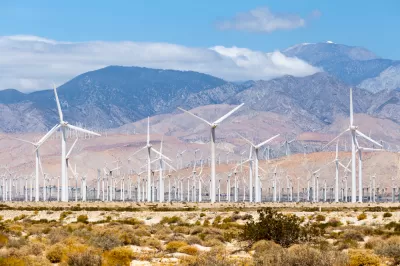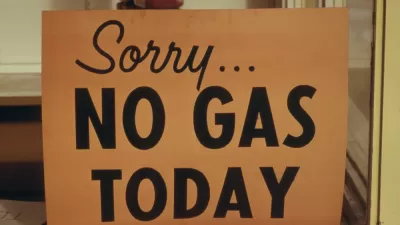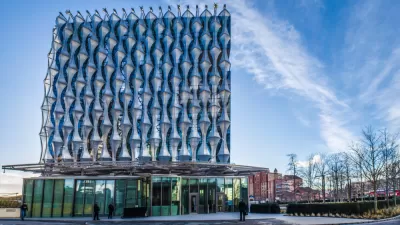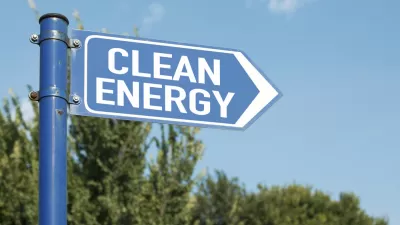California has long led the nation in efforts to reduce greenhouse gas emissions. A law approved in 2006 still provides direction for the state’s efforts.

The California Air Resources Board recently released a plan to achieve carbon neutrality in the state by 2045. The scoping plan, mandated by AB 32, California’s landmark climate change law approved in 2006, describes the path by which the state to reduce greenhouse gas emissions 40% by 2030 and 85 percent by 2045.
“By 2045, the plan envisions a thirty-fivefold increase in zero-emission vehicles and four times the amount of power generation from wind and solar energy — an increase that would avoid the need for new natural gas-burning power plants, officials say. The plan also anticipates that consumer demand for petroleum and natural gas will drop 86% in the next 23 years,” writes Tony Briscoe in an article for the Los Angeles Times.
As noted by Briscoe, the scoping plan is non-binding, so “It will be incumbent on lawmakers and government agencies to pass legislation, establish regulations and earmark funding for climate initiatives that achieve these targets.”
“And the state will need the cooperation of private industry and Californians.”
More specifics from the scoping plan are included in the article below.
FULL STORY: California unveils plan to reach carbon neutrality by 2045

Planetizen Federal Action Tracker
A weekly monitor of how Trump’s orders and actions are impacting planners and planning in America.

Congressman Proposes Bill to Rename DC Metro “Trump Train”
The Make Autorail Great Again Act would withhold federal funding to the system until the Washington Metropolitan Area Transit Authority (WMATA), rebrands as the Washington Metropolitan Authority for Greater Access (WMAGA).

The Simple Legislative Tool Transforming Vacant Downtowns
In California, Michigan and Georgia, an easy win is bringing dollars — and delight — back to city centers.

The States Losing Rural Delivery Rooms at an Alarming Pace
In some states, as few as 9% of rural hospitals still deliver babies. As a result, rising pre-term births, no adequate pre-term care and "harrowing" close calls are a growing reality.

The Small South Asian Republic Going all in on EVs
Thanks to one simple policy change less than five years ago, 65% of new cars in this Himalayan country are now electric.

DC Backpedals on Bike Lane Protection, Swaps Barriers for Paint
Citing aesthetic concerns, the city is removing the concrete barriers and flexposts that once separated Arizona Avenue cyclists from motor vehicles.
Urban Design for Planners 1: Software Tools
This six-course series explores essential urban design concepts using open source software and equips planners with the tools they need to participate fully in the urban design process.
Planning for Universal Design
Learn the tools for implementing Universal Design in planning regulations.
Smith Gee Studio
City of Charlotte
City of Camden Redevelopment Agency
City of Astoria
Transportation Research & Education Center (TREC) at Portland State University
US High Speed Rail Association
City of Camden Redevelopment Agency
Municipality of Princeton (NJ)





























